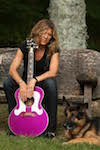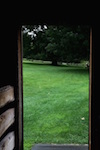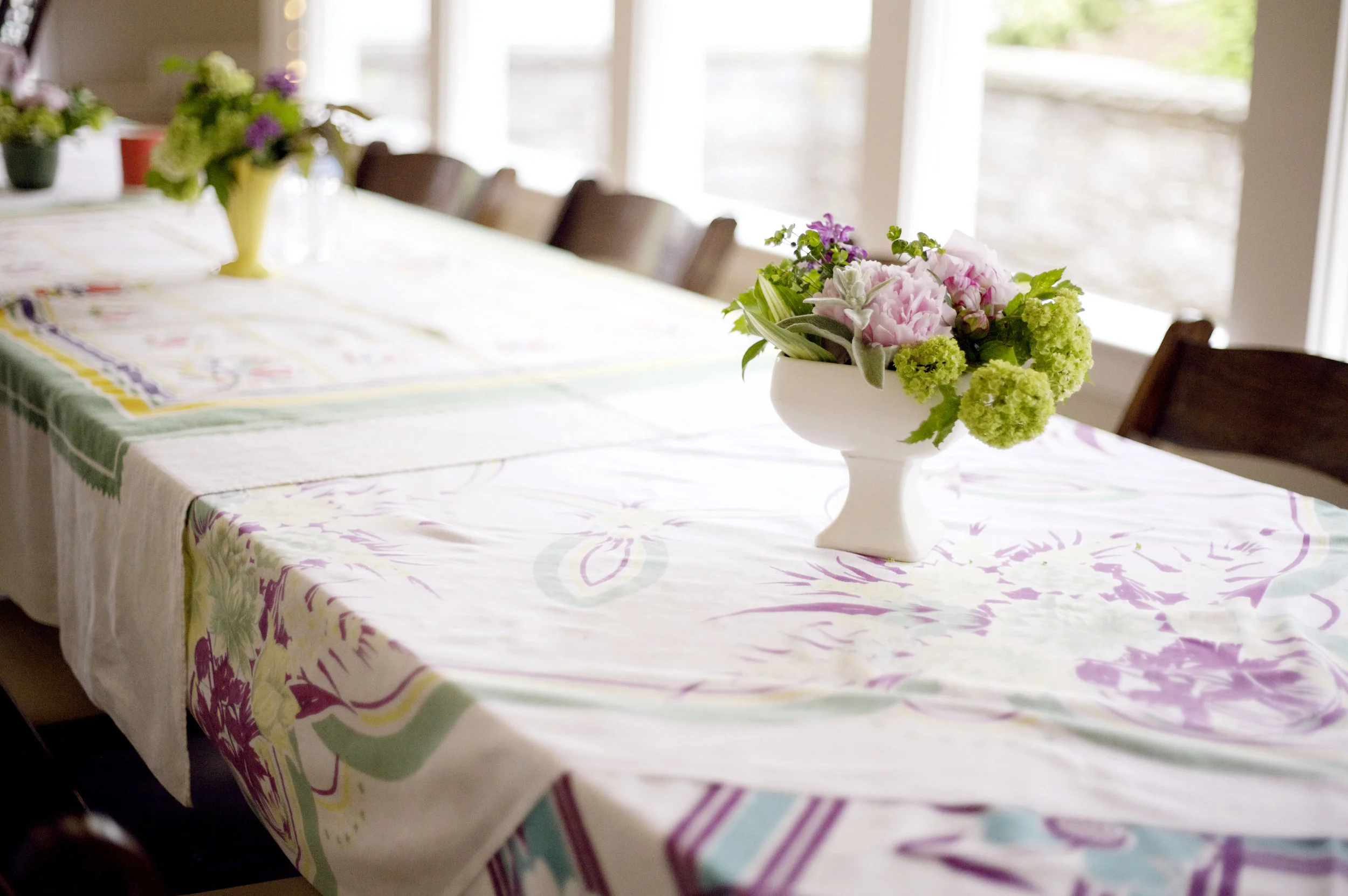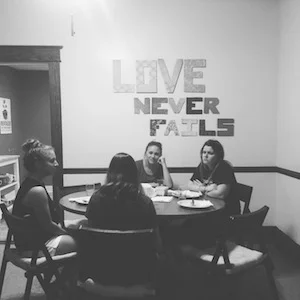Hospitality is a good life, but it’s not an easy life. If you do it enough it won’t look or feel like it came from the beautiful pages of a magazine. True, biblical hospitality is born of grace—grace for the giver and grace for the receiver.
All in Vocation
Dancing Through Visions of Vocation
Courage isn’t always forceful or strong. On the first day of my teaching career, some thirty odd years ago, my sweet husband gave me an art piece for my classroom with a quote from Mary Anne Radmacher that says: “Courage doesn’t always roar. Sometimes courage is that little voice at the end of the day that says I’ll try again tomorrow.” That’s me in a nutshell. And that’s the beauty of the thing. Because so far, I still have another tomorrow.
Here I Sit
The act of writing itself carves out space for beauty in my life. This has always been true, but without the pretention of doing something big and important, I can relax into whatever shows up on paper—the mess and joy and struggle and grief and giggles of life. These are not the habits of a serious writer, of course. These are not the daily practices and evaluations needed to send a piece out into the world, just as letting the garden go to the wild won’t work as a long-term strategy. But this is what writing is to me right now, how I remember that writing starts with glimpsing into a world of magic, that it starts with, “Here I sit.”
Finding Voice
When I place a record on the turntable, something in me slows down. It simply will not do to continue the multitasking that consumes most of my days and some of my nights. This is not background music for grading; it is an experience. I must listen. And as I listen, the experience threads its way into the busyness of my everyday. As I listen, the crackle and hiss of the turntable’s voice lets me into the wild soul of the music.
Testing Siri
What I love the most about Siri is if I make a mistake—a wrong turn, for example—she doesn’t tell me. She just finds a new path for me without saying, “re-calculating.” Sometimes, I’d make a mistake on purpose, just to see if Siri could find me and figure out what to do with me next. She always did. Only a few times has she told me to, “proceed to the route,” and I do, wondering only for a moment if her robotic female tone sounds mildly snarky and exhausted with me.
Vernal Equinox
Three daybreaks in a row, I spot a long-necked snowy egret, a thing I’ve rarely seen on Ocracoke during crowded summers. I will see a fourth and a fifth before this week is out. I’m cycling on the sound side of this windy barrier island, 20–25 miles out into the Atlantic Ocean off the coast of North Carolina. I’m here in late winter, in time for the run up to Vernal Equinox and to learn from the elegant waterfowl and her windswept empty beaches how to be and think and pray afresh—how to work and play in an uncluttered, unfettered manner.
A Shimmer of Possibility
I remember which bookcase it was on, where it was on the shelf, what the light was like. Maybe I opened it to a sentence that might as well have been in neon, a passage I admired for its construction and loved for its truth. I've kept the book all these years and reread it, or at least part of it, a few times (evidenced by the geological strata of marginal notes). And for decades I’ve kept a little sign on my desk with one of her sentences, printed in a font that now seems to scream 1990s: “Work is the backbone of a properly conducted life, serving at once to give it shape and hold it up.”
The Cost of Making a Great Record
This career is something I’m called to. It’s fulfilling, hard, rewarding, and scary sometimes, but I can’t see myself doing anything else right now. Unto Us was a labor of love. I’m so proud of the musical moments we created in the studio, and I love imagining thousands of families creating Christmas memories with my music as a soundtrack.
Small Things, Slow Work
To love our city and care about the arts and creativity has been about loving and caring for individual people. And I think for any of us it comes down to that. Loving a city and its people in general doesn’t mean a whole lot. Loving a city and its people in specific, however our callings lead us, means everything.
On Honest Art
For a day we considered our deepest disposition, sons of Adam and daughters of Eve that we are: we compartmentalize, we believe one thing to be true and behave as if another thing is true, we say “This matters most!” and then live as if it doesn’t really. This tendency has profound implications, for learning, for labor, for love, for liturgy—for all of who we are, for all of how we live.
How do we begin to find our way to coherence? Can we even imagine a way of seeing and hearing that honestly connects what we believe with the way that we live?
On Taking a Band Break, Comedic Short-Story Song Writing, and Grandma Carolee: Brooke Waggoner Interviews Kelsey Kopecky
As a writer in the past I’ve been like, “Okay, how can I say this message and encrypt it in this level of poetry that sounds interesting for the sake of poetry?” But ever since picking up an electric guitar, my music is sounding so much like when I’m on the phone with my best friend Laura telling her things about Minneapolis where I grew up—songs that are trying to say what I want to say but you talk too much type of lyric. I would have never written that before because I would have thought it isn’t poetry.
 Hospitality is serving people and helping people who are in our home. We listen. If they stay in our home, I fix meals and prepare a bed and so forth for them. I read something about—I think it is Benedict's Rule of Hospitality—that there's a difference between serving and being a servant. When I'm serving, I'm in charge. If I'm a servant, you're part of it. If you want to do something to help me, I'll let you do it because that's allowing you in. You're not being in charge. I'm not being in charge.
Hospitality is serving people and helping people who are in our home. We listen. If they stay in our home, I fix meals and prepare a bed and so forth for them. I read something about—I think it is Benedict's Rule of Hospitality—that there's a difference between serving and being a servant. When I'm serving, I'm in charge. If I'm a servant, you're part of it. If you want to do something to help me, I'll let you do it because that's allowing you in. You're not being in charge. I'm not being in charge.
 I listen for what I can affirm. I presume that people have treasured enthusiasms that are worthy of affirmation in some small way, and I try to find out what is it about the football game or even the legislation that seems to address a hope or a fear in that person. I start there and see where we can go. I do that in the classroom all the time, when I say something that leads a student to conclude that I’m not on their side. I try to provoke. I think everything I say I really believe, but I do try and direct it in such a way that it invites a sometimes passionate response, or at least that makes the person feel they must respond in order to be true to who they are. And once they do that, that’s not the end of the conversation. That’s the beginning of more questions.
I listen for what I can affirm. I presume that people have treasured enthusiasms that are worthy of affirmation in some small way, and I try to find out what is it about the football game or even the legislation that seems to address a hope or a fear in that person. I start there and see where we can go. I do that in the classroom all the time, when I say something that leads a student to conclude that I’m not on their side. I try to provoke. I think everything I say I really believe, but I do try and direct it in such a way that it invites a sometimes passionate response, or at least that makes the person feel they must respond in order to be true to who they are. And once they do that, that’s not the end of the conversation. That’s the beginning of more questions.
 I want to live a contemplative life and, as an extension of that, to be a contemplative writer. I already tend toward that kind of life. I love thinking and getting into the deep space in my mind to explore and make connections. But getting into that space in a meaningful way can be difficult because it requires time and space. If there are no empty spaces for contemplation, there is no contemplation.
I want to live a contemplative life and, as an extension of that, to be a contemplative writer. I already tend toward that kind of life. I love thinking and getting into the deep space in my mind to explore and make connections. But getting into that space in a meaningful way can be difficult because it requires time and space. If there are no empty spaces for contemplation, there is no contemplation.
When a Dream Becomes a Life
Vocations are not occupations, though they are integrally woven together. To know the difference and the difference it makes is critical, and much of the grief we experience is borne of missing one for the other. Vocation is always the longer, deeper story of someone’s life; for Joy, she was always the creative creator of things she would make that the whole world would someday enjoy. Occupation is not that, but is more the way we describe the things we do along the way of life, entering into particular responsibilities and relationships that are ours, and while shaping and forming us, are more often than not signposts of the deeper vocation. They are not the point; they point to the point.
 It’s not only that God shines out from orange slices and bookshelves. It’s that with grace, these things make love and goodness. These things—caring for these things, building and cleaning and keeping these things—make a place for the heart to rest and be cared for.
It’s not only that God shines out from orange slices and bookshelves. It’s that with grace, these things make love and goodness. These things—caring for these things, building and cleaning and keeping these things—make a place for the heart to rest and be cared for.
 I am contemplative and introverted. I am tactile and love to make things. These are all catalysts for articulating my individuality. I am also an alcoholic, a drug addict, an egomaniac with an inferiority complex and an emotional lightning rod. These things do not supply my identity either, though they are as much a part of me as the traits I cherish. And I am equally grateful for them because the helplessness they triggered ushered me further into dependence on God and finding my place on the path, one step at a time.
I am contemplative and introverted. I am tactile and love to make things. These are all catalysts for articulating my individuality. I am also an alcoholic, a drug addict, an egomaniac with an inferiority complex and an emotional lightning rod. These things do not supply my identity either, though they are as much a part of me as the traits I cherish. And I am equally grateful for them because the helplessness they triggered ushered me further into dependence on God and finding my place on the path, one step at a time.
 Like committing crummy jokes to memory, remembering is intentional, the discovery of great gain in contentment. Where the debris of spilled baggage reaches its angle of repose, the place where physical objects come to rest along an incline (to borrow from Wallace Stegner), there is rest from the near-constant onslaught of shame, of striving to be enough, to make ourselves worthy, to, in effect, make gods of ourselves. And maybe not being enough is a healthy place to be, a place where God is good and is enough, all the time.
Like committing crummy jokes to memory, remembering is intentional, the discovery of great gain in contentment. Where the debris of spilled baggage reaches its angle of repose, the place where physical objects come to rest along an incline (to borrow from Wallace Stegner), there is rest from the near-constant onslaught of shame, of striving to be enough, to make ourselves worthy, to, in effect, make gods of ourselves. And maybe not being enough is a healthy place to be, a place where God is good and is enough, all the time.
 I think fiction writers do have something I lack. They must have the capacity to close their eyes, at least a little bit, to the world outside their window. With eyes half open they are free to imagine. Free to conjure whole worlds and lives. They are magicians as much as artists, and I am the grateful recipient of their magic.
I think fiction writers do have something I lack. They must have the capacity to close their eyes, at least a little bit, to the world outside their window. With eyes half open they are free to imagine. Free to conjure whole worlds and lives. They are magicians as much as artists, and I am the grateful recipient of their magic.
But I cannot close my eyes. Not even a little bit. I write nonfiction because so many memories are tapping at my window, there is no room left in my mind for any invention. I am wholly preoccupied observing and studying that which is already there.
Love Never Fails
We’re giving ourselves to these things, piece by very tiny piece. But before and amid all of that we’re giving ourselves to God and to each other. We’re relearning that we belong to each other already, that all things and people are connected. We’re creating space where we can remember who we are and whose we are — where we know we’re not alone.



























